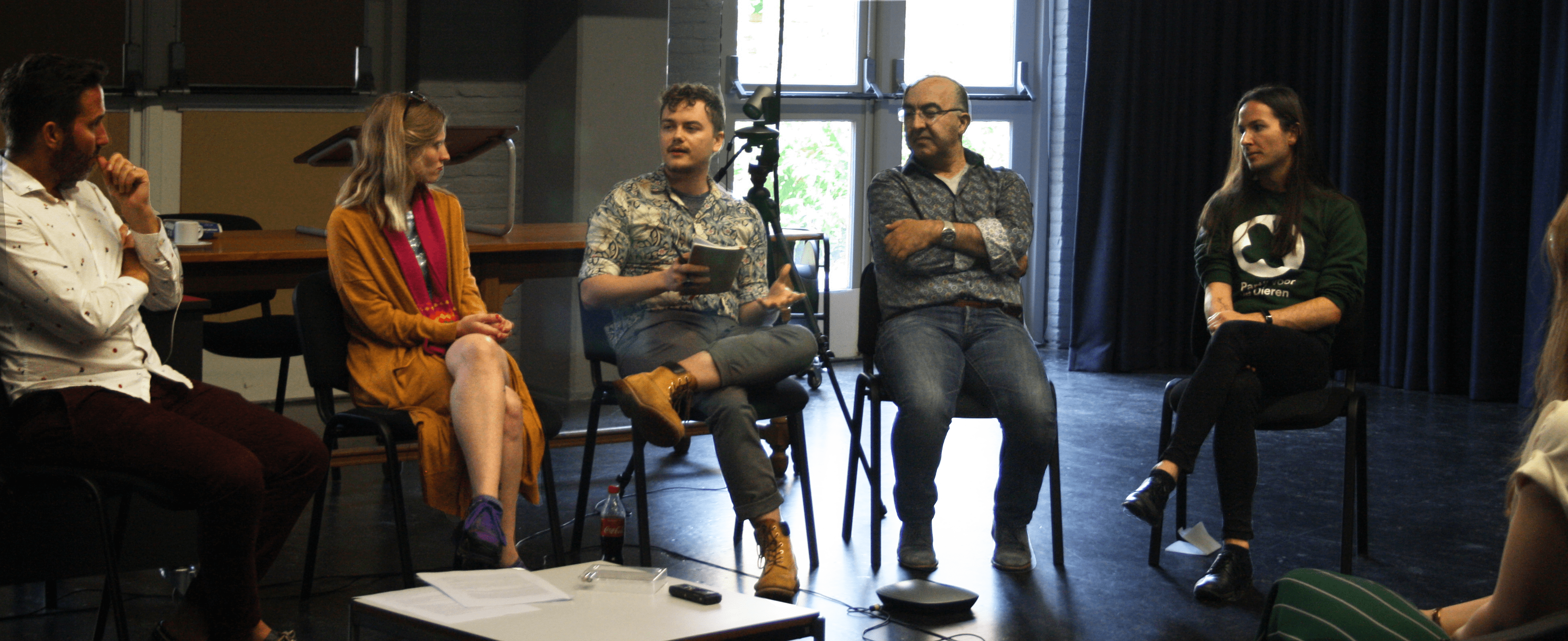Bio-cultural Diversity & Hegemonic Power: The Role of the Humanities in Navigating Knowledge - A day of encounters co-organised with Counterpoint: Navigating Knowledge

On 4 June 2019, the Groningen Research Institute for the Study of Culture and Counterpoint: Navigating Knowledge co-organised a forum in which artists, scholars, and activists discussed and exchanged new ideas and understandings of bio-cultural diversity.
Art installation
A video installation created by artist Dorine van Meel , Beyond the Nation State I Want to Dream showed decomposing and recomposing computer-generated images of past and present colonial places, accompanied by a monologue which is haunted by the historical violence of the nation state, perpetuated into the present. The participants and artist discussed if and how art can contribute to the world we want to live in.
Roundtable discussions
In the roundtable conversation with artists, scholars, and politicians various ideas on hegemony in the past and the present were discussed. Asghar Seyed-Gohrab discussed the previous hegemonic role of the Persian language. Sven Gins analysed human control over their environment in pre-modern animal law and trials, and Wesley Pechler discussed the Party for the Animals’ aims to put animal rights on the national and European agenda. Sophia Löwe argued for the benefit of shapeshifting in order to be bio-cultural diversity in humanities. Alternatives to ocularcentric and ableist knowledge systems were explored by Piet Devos. Last but not least, Whitney A. Bauman inquired which knowledge traditions and approaches can aid in addressing unearned privileges.
Workshops
The afternoon included a workshop convened by anthropologist Susannah Crackford, in which narratives of fragmentation and loss of hegemony and grief, especially in relation to climate change, were discussed. The second workshop was based on discussing the question how the humanities can actively contribute to the discourse on hegemony. Participants exchanged ideas on how the humanities can reorganise to go beyond the economic norm, analyse fluid categories of knowledge, and be self-reflective.
Word of thanks
We would like to express our gratitude to Counterpoint: Navigating Knowledge for co-organising this forum on which innovative ideas and exchanges traversed the boundaries of disciplines and traditional institutes. We would also like to thank the Groningen Centre for Religion, Conflict, and Globalization for co-sponsoring the event.
Text: Gooitske Nijboer
| Last modified: | 11 January 2022 1.46 p.m. |
More news
-
16 April 2024
UG signs Barcelona Declaration on Open Research Information
In a significant stride toward advancing responsible research assessment and open science, the University of Groningen has officially signed the Barcelona Declaration on Open Research Information.
-
02 April 2024
Flying on wood dust
Every two weeks, UG Makers puts the spotlight on a researcher who has created something tangible, ranging from homemade measuring equipment for academic research to small or larger products that can change our daily lives. That is how UG...
-
18 March 2024
VentureLab North helps researchers to develop succesful startups
It has happened to many researchers. While working, you suddenly ask yourself: would this not be incredibly useful for people outside of my own research discipline? There are many ways to share the results of your research. For example, think of a...
